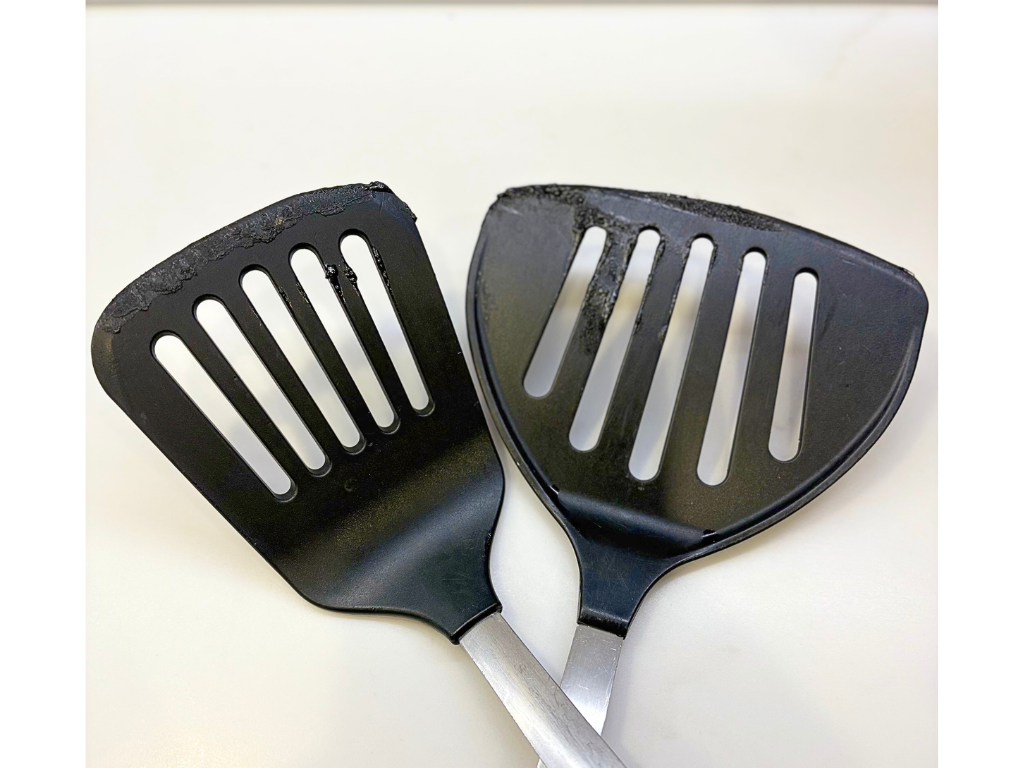
Ditch the Plastic!
Why I Ditched Plastic Utensils for Teak (and Why You Might Want To)
Let me guess: You’ve got a drawer full of plastic spoons, spatulas, or those freebie takeout forks you somehow feel guilty throwing away. Same here. I never thought twice about them - until I stumbled across a few articles that changed how I look at plastic in my kitchen.
Turns out, those everyday utensils might be doing more harm than we think - not just to the planet, but to our bodies too. That realisation led me down a rabbit hole of research... and eventually to a simple solution: switching to teak wood utensils.
Here’s what I found - and why I think it’s worth making the swap.
What’s Really in Plastic Utensils?
It’s easy to assume plastic utensils are just, well, plastic. But they’re actually made with a mix of chemicals - sometimes dozens in a single item. According to scientific studies, over 14,000 different chemicals are used in food packaging and plastic products, including cutlery. (Le Monde)
Many of these chemicals can leach out, especially when the plastic is exposed to heat (like stirring hot soup or dishing up from a hot pan). Some of the big troublemakers include:
- BPA – linked to hormone problems, anxiety, and even cancer.
- Phthalates – often used to make plastic flexible, but tied to developmental issues and asthma.
- Flame retardants – found in a lot of black plastic utensils, these are seriously bad news for your health, including your thyroid and brain. One study found them in 85% of black plastic cooking tools. Ideal Home)
Add it all up, and experts say it’s not just one item here or there - it’s the cumulative effect of tiny exposures over time that matters. (People Magazine)
But Wait—Aren’t Plastics Regulated?
Sure, there are limits on certain chemicals like BPA, but those rules are changing. Europe recently slashed the “safe” level of BPA to nearly zero because newer research shows even tiny doses can be risky. (Wikipedia)
And the thing is, even if each individual plastic item meets safety standards, nobody's checking how all these chemicals interact when they build up in your body - through your utensils, your food packaging, your shampoo bottle, and everything else.
What About the Environment?
You already know plastic is bad for the planet, but the numbers are still shocking. Most plastic utensils are single-use and non-recyclable, and they can take hundreds of years to break down - if they ever do. In the meantime, they become microplastics, which pollute oceans, soil, and even our food.
Plus, the process of making plastic uses a ton of water and energy. One source estimates plastic cutlery production has a carbon footprint 3 to 4 times higher than making wooden utensils. (Alder-Tek)
So Why Teak?
That brings me to my solution: teak utensils.
I chose teak for a few reasons. First, it’s beautiful - rich, warm wood that actually looks good sitting out on the counter. But more importantly, it checks all the right boxes:
✅ No toxins – Teak is all-natural and doesn’t leach anything, even when it gets hot.
✅ Durable – It lasts forever (seriously, I’ve dropped mine more times than I can count).
✅ Naturally antibacterial – Thanks to its natural oils, it doesn’t absorb smells or stains.
✅ Eco-friendly – It’s biodegradable, renewable, and takes a tiny fraction of the water and energy that plastic does to produce.
In short, teak is safer for your food, gentler on your pans, and easier on the planet.

Is Wood Hard to Take Care Of?
Honestly? Not at all. I just rinse mine after each use and occasionally rub in a little food-safe hemp oil to keep it looking nice. No dishwasher, but that’s a small price to pay.
In fact, because teak is a hardwood with natural oil content, it resists cracking and warping better than most other wooden utensils - like bamboo or acacia. (Urban Grace)
The Bottom Line
Making the switch to teak was one of those small changes that felt surprisingly big. I don’t miss the plastic utensils at all. No more melted edges. No more wondering what mystery chemical I might be mixing into my pasta sauce.
It’s just wood. Natural, sturdy, reliable.
And I’ll be honest: using teak makes cooking feel a little more intentional - like I’m treating myself and my family to something better.
TL;DR – Why You Might Want to Ditch Plastic Too
| Feature | Plastic Utensils | Teak Utensils |
|---|---|---|
| Chemicals | BPA, phthalates, flame retardants | None |
| Health risks | Hormone disruption, cancer risk | No known risks |
| Eco impact | High water use, pollution, landfill waste | Biodegradable and sustainable |
| Durability | Breaks easily, melts with heat | Lasts for years |
| Pan-friendliness | Can scratch or melt on cookware | Gentle on nonstick and cast iron |
One Small Swap, Big Payoff
We're not here to guilt-trip anyone or start a kitchen revolution. But if you’re looking for a simple upgrade that’s better for your health, your food, and the planet - teak utensils are an easy win.
You don’t need to throw everything out overnight. Maybe just start with one spoon or spatula. Use it for a few weeks and see how it feels. I’ll bet it becomes your go-to.
After all, if we’re cooking with love, why not use tools that love us back?

And as a Father's Day Special, we're offering our teak utensil set with FREE 100ml bottle hemp oil
Sources for further reading:




